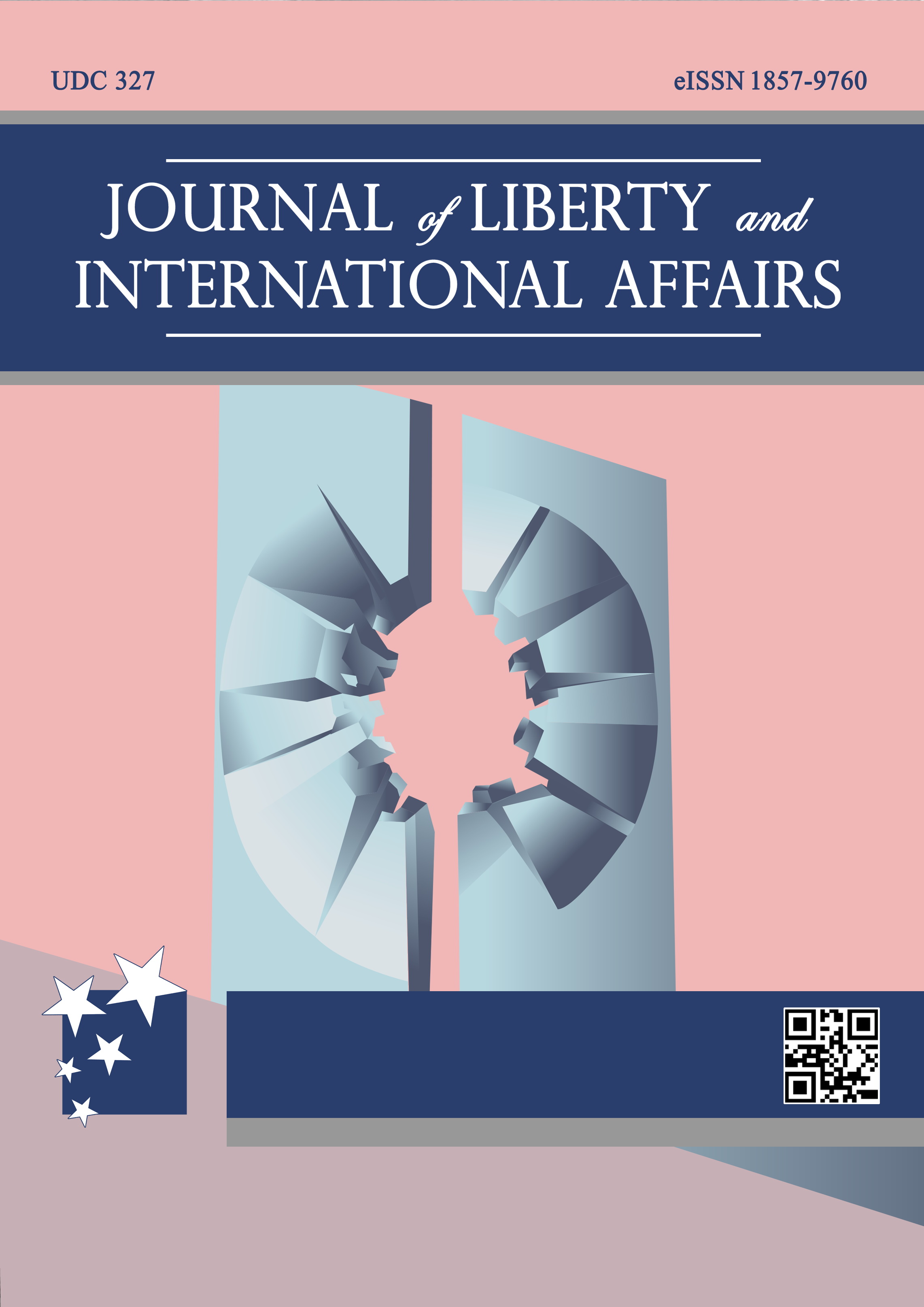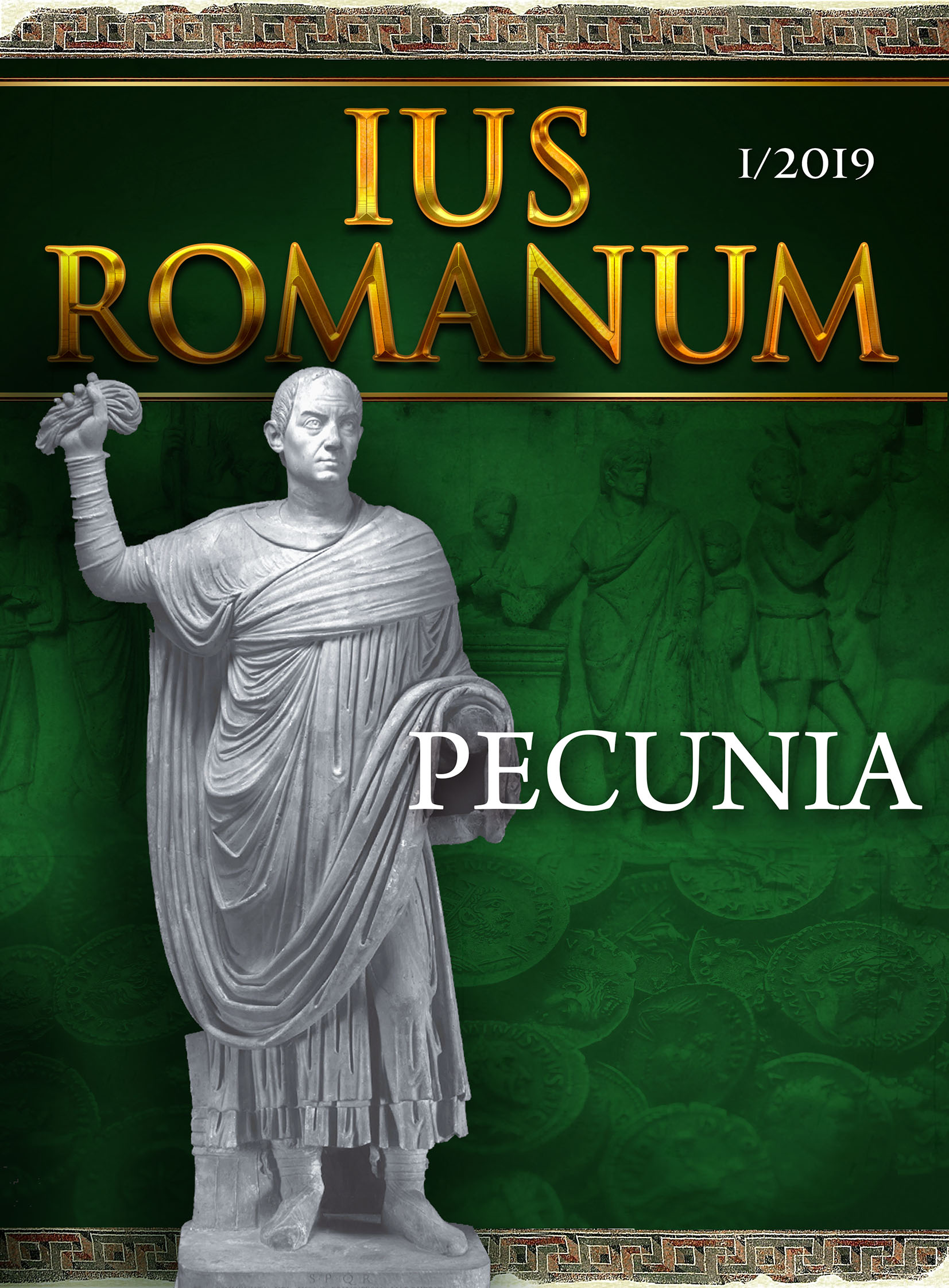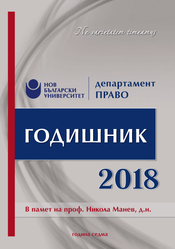
Залогът на вземания по ЗЗД и ЗОЗ
Obligations can no doubt be secured by claims belonging tothe debtor or third parties. Only claims that can be bet can be pledgedtransferred, ie whose nature permits disposition (Art. 162 of the LPP).
More...We kindly inform you that, as long as the subject affiliation of our 300.000+ articles is in progress, you might get unsufficient or no results on your third level or second level search. In this case, please broaden your search criteria.

Obligations can no doubt be secured by claims belonging tothe debtor or third parties. Only claims that can be bet can be pledgedtransferred, ie whose nature permits disposition (Art. 162 of the LPP).
More...
It is considered, that the conflict by itself is not a problem, a problem is the unresolved conflict. Besides the traditional legal procedures, alternative means for resolving disputes and conflicts exist. One of them is mediation. The mediation is an out-of-court method for resolving disputes (conflicts) with the assistance of a specially trained for this person – a mediator, who has as a main objective to aid the disputing sides to reach a sensible solution of their problem themselves.The main principles of mediation are: voluntarity, equality between the sides, impartiality of the mediator and confidentially on the acquired information.
More...
In the following lines we will try to give some light to these legal phenomena, hurrying to note in advance for our humble attempt to penetrate this matter, with the intrinsic, usually for every first attempt mistakes, faults, failures. Experience not useful with your own final results, and above all as a basis upon which it can be discusses. And of course the questions will be more than the answers.
More...
This study aims to explore the anatomy of the implementation of zakat and to reconstruct and to find an appropriate model law of zakat in Indonesia. Zakat can be optimized in improving and creating public welfare. The detailed analysis focused on the potentials of zakat that can be developed and manifested. The development of zakat was based on the existing of the Indonesian positive law and Islamic Law. Therefore, this study first identified and interpreted the divine values (Ilahiah values) that sourced from Qur'an and hadith. It elaborated on the legal resources from ijtihad, the fatwa from various theologians (Islamic Scholars). This study also applied normative legal research for addressing the issues related to the reconstruction of zakat norms. Meanwhile, empirical research was used to address and ascertain the societies' respond to the zakat changes. In normative legal research, this work used statutory, conceptual and case approaches. Thus, this work offers a good model of zakat management, such as zakat for a profession, zakat from fisheries products and other yields of the sea. This also reformed the model of collecting and distributing zakat.
More...
Indonesia is a unitary state as asserted in Article 1 paragraph (1) of the Constitution of the Republic of Indonesia 1945. As a consequence of this, Indonesia dividing its territory into several regions. This study aims to analyze the form of regulation on financial relations among the central and regional governments, especially those that regulate balance funds to accelerate the equitable distribution of development. Types of normative research with legislative, conceptual, and philosophical approaches were used as the research method. In conclusion, the formulation of balancing funds between the central and regional governments prevailed so far has not yet reflected a sense of justice so that it can obstruct the occurrence of even distribution among regions.
More...
The present work tries to provide a general vision about the incomes and expenses that the cities had to face as a consequence of the development they experienced with the concession of ius latii by emperor Vespasian. Specifically, those referred to the Flavian municipalities in the Roman province of Hispania will be named, which, in part, reflect the content of the lex for the Urso caesarian colony.
More...
In this article the author examines the terminology related to roman peculium and the creation of the practice of providing res peculiaris, as well as the concept of peculium as a “quasi proprium patrimonium” servi/filii familias. The paper particularly considers this property given to sons and slaves, but which remains separate in the patrimonium of pater familias/ dominus with special legal framework as well as the development of actio de peculio in the praetors edict activity, namely, from the chronological point of view, between the 2nd century B.C. and the 3nd century A.D. This actio is a part of the so-called actiones adiecticiae qualitatis and it build the bases of the limited liability in commercial law.
More...
The article is dedicated to the jurisprudential debate on the validity of actio noxalis in the cases in which his holder disposes of the servus or filius familae that caused the noxal responsibility.
More...
Patria potestas deploys a great amount of effects on the persons and the goods of the roman filii familias. This study aims to approach these legal effects and brings a general investigation in the roman family law context.
More...
The article looks at Roman financial and tax law, united under the name „ius fiscale“, as distinct from „ius fisci“. Fiscal rights and obligations of individuals as taxpayers are defined. Particular attention has been paid to the tax jurisdiction and to some of the tax cases discussed by Calistrat. The author assumes that, although the regulation of fiscal issues in ancient Rome is too close to modern times, the systematics and some institutes that look nominally identical cannot be fully understood.
More...
The „VII Partidas“ called code, is the greatest legislative work of the ius commune. In them is collected, in Spanish language, the main precepts received from Roman and Canonical law forming a corpus that would result from regulatory application until the promulgation of the Civil Code in 1889. The object of this work is to analyse the considerations of items relating to the enforcement of monetary judgments and comparing them with the regulation of the pignus in causa iudicati captum established by Antoninus Pius for the Roman process. Consideration of the Glossae of Gregorio López analyzes reflections which, in his day, caused by the Alfonso’s Code.
More...
The research covers issues related to issuing customs decisions on the application of EU customs legislation. There is currently no in-depth discussion on these issues. The practice of the administrative authorities competent to issue acts on the application of customs legislation reveals uncertainty and still ignorance of the new legal framework, which undoubtedly leads to contradictions in the judicial resolution of legal disputes. This article is part of a larger study on administrative service delivery by Member States' customs administrations in the EU and aims to clarify and analyze problematic issues.
More...
Laesio enormis is the institute of Roman law which is being implemented with certain modifications in modern legislations. It is one of a set of measures introduced by Diocletian with the aim to prevent accelerating demolition of Roman state. This institute also protected the small landowners (farmers) from decline and prevented larger concentration of land in hands of wealthy landlords by allowing the termination of a contract if the price of exchange is less than a certain sum (for instance one half) of its actual value. This measure also meant the humanization of law since it protected the interests of a weaker party. The expression “laesio enormis” came from glossators and refers to “the damage over half” (ultra dimidium iusti pretii) and in terms of terminology, it is connected to the issue of pretium iustum (the right price). The Byzantine law recognized the institute laesio enormis and applied it in a slightly changed form. Thus, in Basilicas there are rules related to the institute laesio enormis. They were modified to include the sale contracts for all goods, but remained to favorize the position of sellers. Through the Byzantine law the institute laesio enormis became the constituent part of Serbian medieval law by means of a specific compilation under the name “Justinian's Code”. Later on, the provision of this institute were include into Dušan's Code.
More...
The article aims to present a brief analysis of the system of hereditary property protection in Ancient Rome. Historical analysis has a current sound and can be used as a starting point for improving the modern means of providing such pro-tection. A special remedy for inheritance property under Roman law is the claim of inheritance. The Roman tradition and application of this claim is characterized as the basis for its modern meaning and function. In this respect, current and dis-cussion issues related to the need for special protection of the inherited property are discussed.
More...
Compulsory portion (forced share), in the countries of the European continental legal system, is the most effective and direct limitation of the testator’s freedom of testamentary disposition. The imperative nature of legal rules regulating the area of compulsory succession ensures the protection of property rights and interests of the decedent’s close family members from excessive gratuitous dispositions mortis causa and/or inter vivos, by which they have been unjustly evaded from succession. Compulsory heirs are guaranteed the right to request their compulsory portion of the succession estate, irrespective of the decedent’s will. Roman law in the Republican era is the cradle of the compulsory succession. The institute of compulsory portion had passed a centuries-long path of its development to the Justinian law, when effective system of its legal protection was established. In this paper, the stages of development of this institute in Roman law will be analyzed, as well as the role and importance of Roman law for the development of the institute of compulsory portion in the contemporary law. Moreover, the author will analyze current trends of regulation of forced heirship in the Continental European Law (Civil Law), and reforms that have been made by European legislators in recent decades.
More...
The institute of state aid is essentially a system of rules whereby the European legal system provides a balance between support from Member States in seeking to achieve a well-functioning and stable economy and free and fair competition within the Union. This balance is a challenge for the control authorities, as it must combine the internal market principles with the willingness of individual Member States to finance their own businesses by public funds. This study will examine an interesting question related to a specific type of decisions of the European Commission concerning the granting of unlawful state aid in the sale of land and buildings by public authorities and the problems that the implementation of such a decision (as a type of Public claim) can create for the effective recovery of aid in the state budget.
More...
The article examines the cases in which the contractual interest rate clause in the loan agreement is considered to be void due to a conflict with good morals (boni mores). The courts set out two criteria for verifying the validity of such a clause – its proportion to statutory interest rate and the existence of debt securities. The article criticizes this approach by offering a complex analysis of contractual rela-tions in order to proclaim the void of the contractual interest rate.
More...
The focus of the following article is put upon several issues that need to be addressed concerning the conversion of a licit public document into a private one in accordance with the provision of Art. 188 of the Bulgarian Code of Civil Procedure. The adopted approach is that the conversion of a public document (i.e. formal conversion) consistsof binding the probative force of a private document to a public document, issued by a non-competent authority or lacking the necessary form. However, this effect can only be observed whenever the private document contains the signature of the parties to the transaction. Moreover, the necessary elements of the formal conversion are put to a scrutinous critical examination. Several issues concerning the formal conversion’s field ofapplication have been addressed as well.
More...
In the article under consideration are the parliamentary rules of procedure of the Grand National Assemblies, which were established under the force of the Constitution of Tarnovo with the exception of the VI Grand National Assembly. Under analysis are the rules, which provide for parliamentary autonomy, the publicity of the session, regulate the rights of the majority and minority in the Assembly as well as the balance between their rights and interests. Under review and description are also the basic parliamentary debates with regard to the adoption of the parliamentary rules of procedure.
More...
In the present study under consideration are the various universal human rights treaties andin particular those of them that establish different treaty-based implementation monitoringmechanisms. This article presents only briefly the various human right instruments and their respective treaty-based mechanisms and procedures. In-depth analysis of the relevant universal human right treaties and their monitoring mechanisms is made by the same author in a separatecomprehensive study.
More...